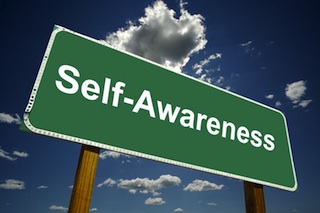Behavior Modification and Personal Accountability

The Importance of Behavior Modification and the Role of Personal Accountability
As a bariatric patient care professional, I encourage the following mindset with patients from all surgery time frames and life situations:
- Lifelong commitment to pursuing a healthier lifestyle,
- Compliance to the recommendations of behavior modification, and
- Addressing and grappling with the challenges that are life long
Self-awareness and personal accountability are two areas that are not so obvious when assessing one’s own role in the struggle with obesity. We are aware of genetics, family history, medical co-morbid conditions and life stress that impact each patient’s history of their own struggle with being obese. So how do patients obtain the necessary tools to support the physical presence of bariatric surgery? Through engaging in a solution to the past disappointments of weight loss efforts that are already so familiar.
Many patients report the path to insight and reflection often reveals mental justifications, old bargaining behaviors and frustrations that fuel negativity and inappropriate attachments to and uses of food. Although it is easy to lay blame for many things in life, self-deception only facilitates the repetitive cycle of anger and disappointment. In the professional arena, we often discuss the addictive quality of food and how food has a parallel function in the same manner that other behaviors do, i.e. shopping, drugs and alcohol, sex, gambling and the like. The need for emotional escape and mental distance can encourage us to use food as “anesthesia”, a way of shutting down and shutting out the world around us. We are careful to watch for those cross-addictive behaviors following bariatric surgery and recommend supportive resources across the board. These services provide a safe and secure way to investigate and discuss personal issues that are relevant and central to the patient’s path to success following surgery.
The role of a supportive aftercare program or community of patients, even individual therapy, is a vital component to future success and and be a valuable tool on the road to recovery, helping to smooth the transition and adaptation to new food related behaviors and lifestyle choices. The ability for patient’s to share a parallel experience and be able to “relate” to a certain stage of recovery, or a certain type of struggle with others, will provide an opportunity for engagement and bonding with others. On a therapeutic level, individual counseling can expand one’s degree of awareness and promote a greater sense of personal accountability, once the roots of old behaviors and attitudes have been identified and deciphered. A patient can then restructure their responses to daily challenges that may have been inadequate prior to surgery.
As patients walk the road of recovery from obesity, while engaging in physical as well as emotional healing, the element of discovery and pride is tangible and even contagious. Patients will enjoy improved health, greater energy and a strong positive attitude of self worth; what follows can be a heightened sense of calm, balance and overall peace of mind. Once personal discoveries have been made, individually or in a group setting, bariatric patients can feel a greater sense of control in planning the path in front of them. Commitment and compliance are two key elements that promote post surgery success. As patients employ newfound tools and wisdom on a consistent basis, quality of life can be infinitely better as well as profoundly rewarding.
Excellent article timed perfectly for my personal situation. I'm 10 weeks out, and am relying heavily on my support groups, and tools to keep me on track. It would be so easy to fall back into old patterns. Once I stopped logging (justified of course by I'm eating the same things anyway), I stopped weighing and measuring, sneaking in occasional crap..... It's a dark path, and so easy to fall back into the old patterns. If it wasn't for my support team, it would be another failed attempt.... With the team, I'm logging and accountable, and mindful. I can't say enough how mindful helps me. I hear my nutritionist's voice in my head, "dense Protein first, veggies next, fruit/whole grains if any room left. My nurse's voice, "exercise, Vitamins... ". My psych's voice, "why am I doing this to myself? What do I want" And finally my own voice, in how proud I am of the weight I have lost, and how I don't want to stop here, I want to keep moving in the right direction, for me, my family, my friends........





Dee_1111 317
Posted
I truly hope that the future of WLS makes this subject a 'Mandatory' no Exception rule, that EVERYONE have access to this kind of help. I was fortunate to receive this kind of help before surgery. Because I promise you, without it, I'd of been doom to failure.
My PhD's taught me to come face to face with all the "Why's"..Why am I overweight, Why do I use food for anything other than nourishment, Why do I feel I'm addicted, they also taught me the signs to look for or avoid ..etc. I never knew the importance of PhD's. They really are incredible at their jobs if you find one that is right for you, I did. They taught me food logging, how to eat, what to eat, how to shop, where to shop, what foods to avoid, what my portions should look like,.how to weigh food, how to read labels, how to fix foods I never heard of..just incredible amounts of information to make me a success at being a Bariatric person. So Thank You for giving me the knowledge to go forward with intellect and confidence. There are no other works I can think of to state my admiration and appreciation for what they've done for me PRE-OP. Because of them I am a successful POST OP.
Share this comment
Link to comment
Share on other sites